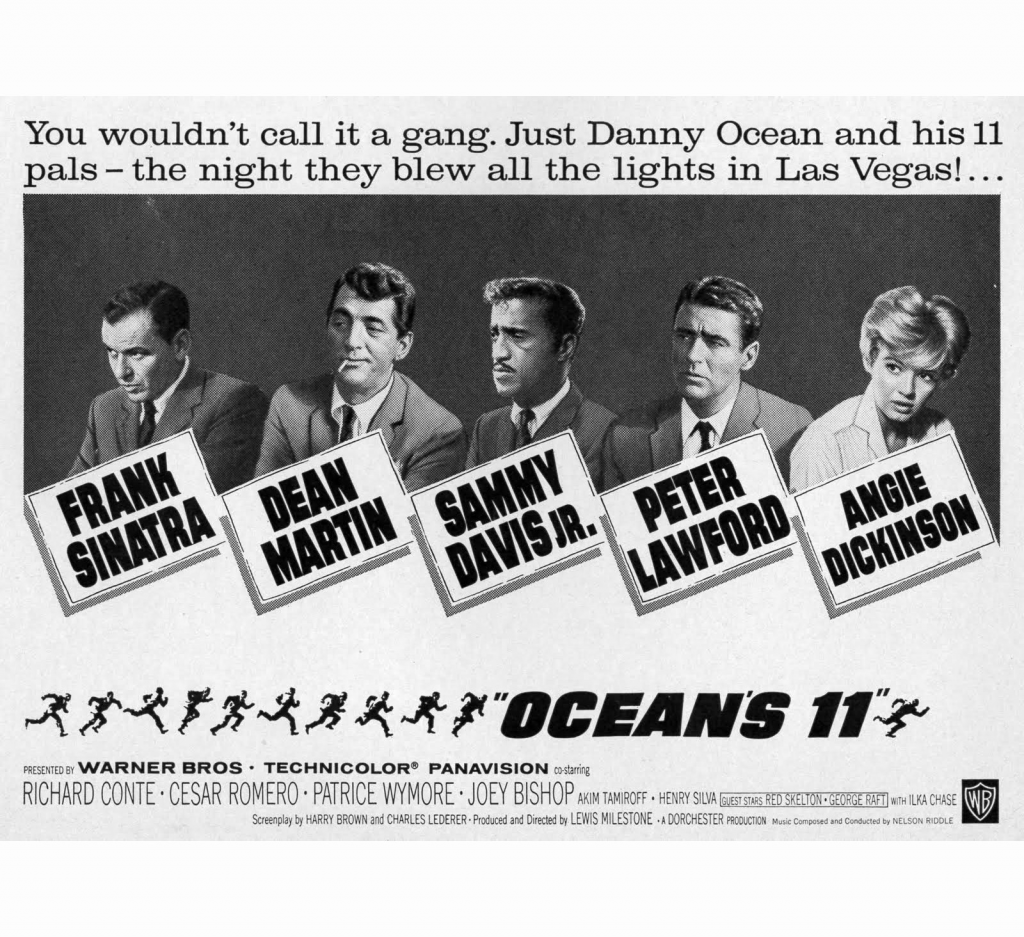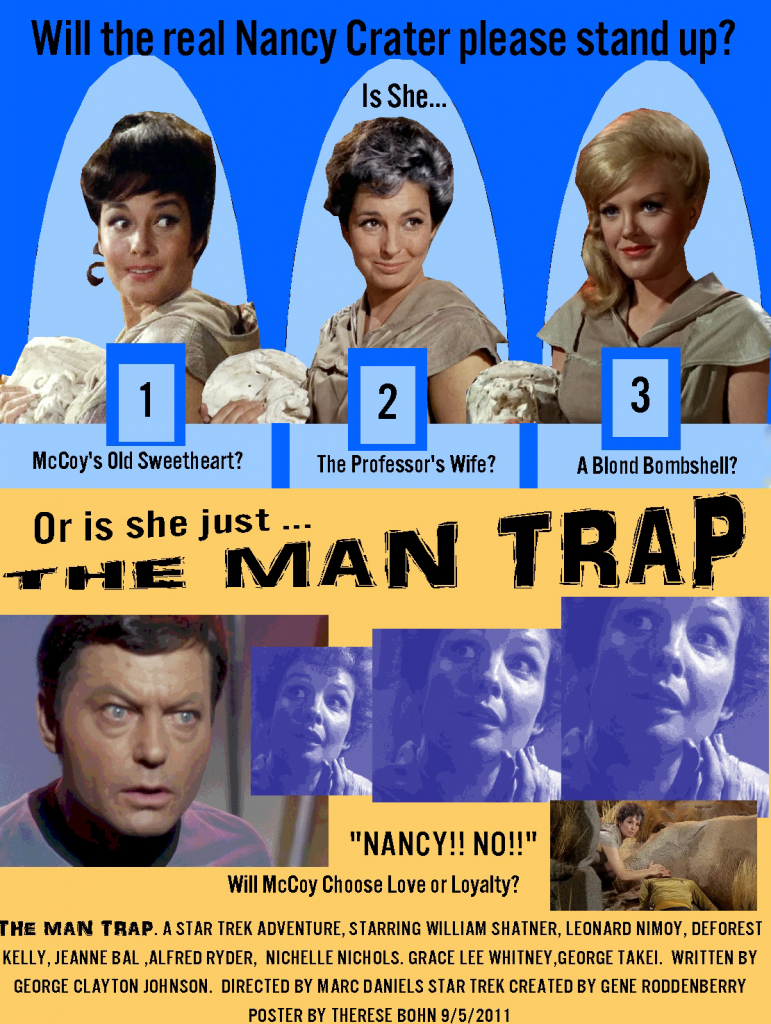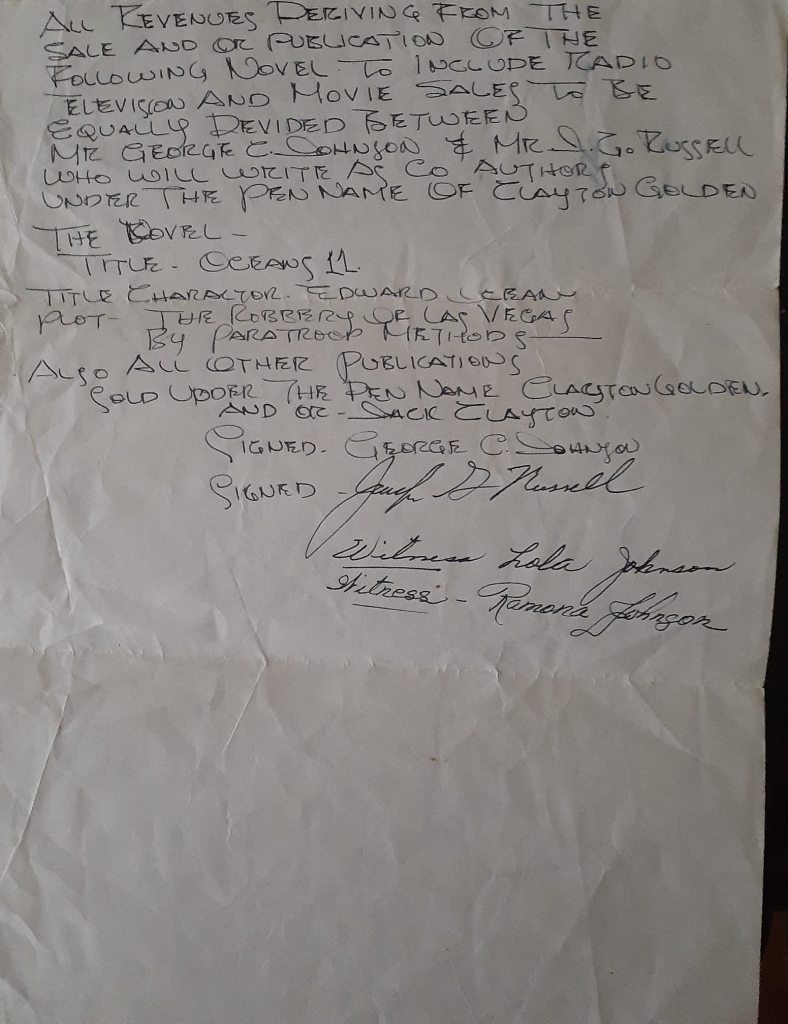
“I want to be remembered as a person who early on in his life took control of his life and set goals. When people gave me a lined paper, I wrote the other way. When people expect some certain behavior from me, I will frustrate their expectations.” George Clayton Johnson (Ocean’s 11, Twilight Zone, Star Trek, Logan’s Run).
The Literary Estate of George Clayton Johnson
George was the creator of “Ocean’s 11” and the first aired episode of the original Star Trek series. He is also considered a master of the short story form, authoring now classic “Twilight Zone” episodes for Rod Serling, who mentioned him (along with Richard Matheson and Charles Beaumont) as one of his “writing gremlins”, while giving his acceptance speech for winning an Emmy.
Logan’s Run and Star Trek
He is best known for co-authoring Logan’s Run (with William F. Nolan) with an unpublished sole sequel contribution to the canon entitled “Jessica’s Run” and writing the first-aired episode of the original Star Trek series entitled “The Man Trap”. He collaborated with Ray Bradbury to create the Academy Award nominated film, Icarus Montgolfier Wright.
Ocean’s 11
Around 1956-’57, George created the story beginning with a 40,000 word attempt at a novel. During this time he asked his friend Jack Golden Russell, a former WWII paratrooper, if he could add ideas of authenticity to the story, later crediting him for his contributions to the story. Mr. Johnson then thought of approaching the story as a screenplay. Under the name “George Johnson”, he solely authored the script on which the 1960 and 2001 films “Ocean’s Eleven” were based. The story and screenplay were optioned to Peter Lawford and his wife, Patricia Kennedy (sister of the future President John F. Kennedy) in 1957. Astonishingly, this was indeed the first story and screenplay George Clayton Johnson ever created and has become a Hollywood franchise.
The Twilight Zone
George’s contribution of classic television scripts for “The Twilight Zone”, (“Nothing in the Dark”, “Kick the Can”, “A Game of Pool” “A Penny for Your Thoughts”) , and others, remain fan favorites of Rod Serling’s visionary series.

L.J. Dopp painted “The Fictioneer” for George Clayton Johnson’s birthday, incorporating visual references to George’s most famous TV and movie work. The only reward Dopp wanted was the thrill of seeing the expression on George’s face when he saw it for the first time.” File770.com. (2015.)
A few more words about my late friend and client, George Clayton Johnson (1929–2015). His impact on popular culture is highly significant. George was an influential American writer best known for his contributions to the realms of science fiction and fantasy, particularly through his work in television, film, and literature. Johnson’s legacy is deeply intertwined with iconic projects such as The Twilight Zone, Star Trek, and Logan’s Run, each reflecting his imaginative storytelling and philosophical depth. He gained fame for his innovative storytelling and imaginative ideas, particularly in works that pushed the boundaries of speculative fiction.

Many remain unaware that George began his career with a flair for speculative fiction, with his first work being the story and screenplay for Ocean’s 11, which became the basis for the classic 1960 film. Quite different from the Rat Pack version, George’s Ocean’s 11 was more The Dirty Dozen meets Ocean’s 11. A hardcore group of WWII U.S. Paratroopers become convinced that (at that time) a cash only Vegas was not prepared for an organized heist which they referred to as a “mission”.
He later co-wrote the novel Logan’s Run with William F. Nolan, which inspired the 1976 film and a television series. The narrative explores a dystopian future where life is terminated at age 21 to maintain societal balance, delving into themes of mortality, freedom, and the human spirit’s resilience against authoritarian control.

His work on The Twilight Zone is particularly noteworthy, having penned classic episodes like “A Game of Pool,” “Kick the Can,” and “Nothing in the Dark.” These stories often grapple with existential questions, the nature of reality, and the human condition, encapsulating Johnson’s philosophical leanings toward the value of life, the fear of death, and the eternal search for meaning.

Johnson also made a significant mark on Star Trek, writing “The Man Trap,” the first episode aired of the original series. This episode highlighted his talent for blending speculative concepts with profound moral questions, as it examined themes of love, loss, and the ethical dilemmas posed by survival.

(Never before seen image of agreement between George Clayton Johnson and Jack Golden Russell regarding what would become “Ocean’s Eleven”.) This image is the property of The Literary Estate of George Clayton Johnson. Permission must be obtained to use elsewhere.
Throughout his body of work, Johnson’s philosophy of life shines through an embrace of curiosity, a challenge to societal norms, and a celebration of individuality and human connection. His stories often reflect a belief in the power of imagination to confront existential fears and inspire change. He viewed storytelling as a means to explore the vast complexities of existence, encouraging audiences to ponder their own lives and the broader universe. His impact on popular culture is enduring, his narratives continuing to resonate with audiences through their timeless exploration of humanity’s hopes, fears, and boundless potential.
Sincerely,
Whitt Brantley III
The Literary Estate of George Clayton Johnson
Learn more about George!
https://en.wikipedia.org/wiki/George_Clayton_Johnson
https://www.startrek.com/news/remembering-george-clayton-johnson-1929-2015